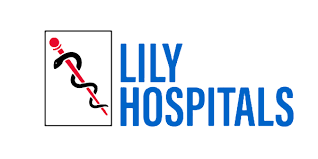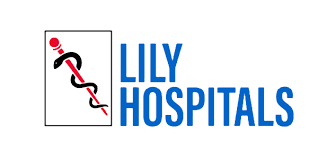United Nations International Children's Emergency Fund (UNICEF) works in some of the world’s toughest places, to reach the world’s most disadvantaged children. To save their lives. To defend their rights. To help them fulfill their potential. Across 190 countries and territories, we work for every child, everywhere, every day, to build a better world for everyone.
We are recruiting to fill the position below:
Job Title: Nutrition Manager, P4
Location: Abuja
Employment Type: Full-time
Job no: 570081
Contract type: Fixed Term Appointment
Category: Nutrition
Level: P-4
How can you make a difference?
To enable UNICEF to address social and behavioral practices that influence diets and practices in the first 1,000 days of life, UNICEF Nigeria is seeking a Nutrition Manager to be based in Abuja, Nigeria. Specifically, the Nutrition Manager will be responsible for the following:
- Develop evidence-informed, gender-sensitive, human-centered strategy to create a ‘new normal’ for diets and practices in Nigeria, particularly in the First 1000 Days of life.
- Engage with stakeholders (internal and external) to execute a harmonized strategy at scale at the national and sub-national levels using a variety of platforms and channels to reach audiences.
- Ensure the availability of high-quality data (qualitative and quantitative) to inform the strategy, enable course correction, and report progress against outcomes.
- Mobilize resources (both domestic and international) to execute the strategy by developing high-quality concept notes and proposals.
- Be accountable for the documentation of results through reports, presentations, publications, etc.
Key Responsibilities
Programmed development and planning:
- Review and refine the analysis of the recently concluded formative research on the First 1000 Days to inform the development of a multi-channel, state-of-the-art, gender-sensitive, integrated, human-centered behavior change strategy at scale.
- Engage with stakeholders (internal and external) to support the government to develop and validate a National Social Behavior Change Strategy for Nutrition. Support UNICEF Field Offices to adapt the national strategy to state-specific strategies and plans.
- Aligned to the United Nations Sustainable Development Cooperation Framework 2022-2026 (UNSDCF), regional strategies, as well as national priorities, plans, and competencies, formulate, design, and prepare high-quality concept notes and proposals to mobilize resources and document results for impact.
Programmed management, monitoring, and delivery of results:
- Provide management oversight to Output 3 on Diets and Practices and ensure plans are developed and executed by UNICEF’s Country Programme Strategy and Partnership Framework with the Government of Nigeria.
- Establish priorities and performance measurements for the Output of Diets and Practices, particularly during the First 1000 days in both development and humanitarian contexts.
- Develop milestones to track the execution and performance of the strategy, enable mid-course corrections, and achieve results.
- Plan, monitor, and enable optimal and appropriate use of resources (financial, human, administrative, and other) ensuring compliance with organizational rules, regulations, procedures, donor commitments, and standards of accountability.
Advisory services and technical support:
- Engage with internal and external stakeholders on the development and execution of state-of-the-art, gender-sensitive, human-centered strategies to create a new normal for diets and practices and provide technical support as appropriate.
- Provide thought leadership to translate findings of the recently concluded formative research on key child survival and nutrition practices in the First 1,000 Days of Life to an implementation strategy in both development and humanitarian contexts
- Serve as the gender focal point for the section and build the capacity of the section on gender transformative strategies.
Advocacy, networking, and partnership building:
- Build and strengthen strategic partnerships with internal and external stakeholders through active networking, advocacy, and effective communication.
- Participate in strategic Programme discussions, and contribute to policy discussions and agendas, especially in the areas of gender, emergency preparedness, and maternal, newborn, and child health and nutrition.
- Build capacity, exchange knowledge and expertise, and/or promote cooperation and alliances to achieve Programme goals on maternal and child rights as well as social justice and equity.
Innovation, knowledge management, and capacity building:
- Promote critical thinking and innovative approaches for sustainable social and behavioral practices that influence diets and practices
- Keep abreast of research and implement state of art practices in the social and behavioral science that influence diets and practices. Institutionalize and share best practices and knowledge learned.
- Organize, plan, and/or implement capacity-building initiatives to enhance internal and external competencies in state of art social and behavioral practices that influence diets and practices.
- Prepare policy papers, reports, briefs, and other strategic documents for management use, donor and government reporting, social media, and/or publication.
Education
- An advanced university Degree in one of the following fields is required: Nutrition, Public Health, Nutritional Epidemiology, Global / International Health and Nutrition, Health / Nutrition Research, Policy and/or Management, Health Sciences, Nutritional Epidemiology, or another health-related science field.
Experience:
- A minimum of eight years of professional experience in a developing country in one or more of the following areas is required: nutrition, public health, nutrition planning and management, or maternal, infant, and child health/nutrition care.
- Progressively responsible professional work experience at the national or international level on gender-transformative, human-centered, nutrition diets and practices in the First 1,000 Days of Life.
- Proven experience in leading multi-stakeholder engagement with Government and partners
- Understanding both development and humanitarian contexts is an advantage.
- Experience working on marketing strategies is an advantage.
- Experience in health/nutrition Program/ project development and management in a UN system agency or organization is an asset.
Method of Application
Interested and qualified candidates should:



